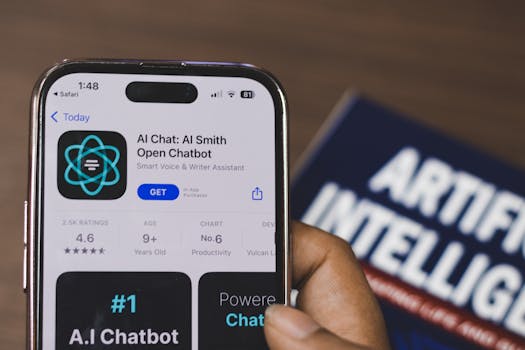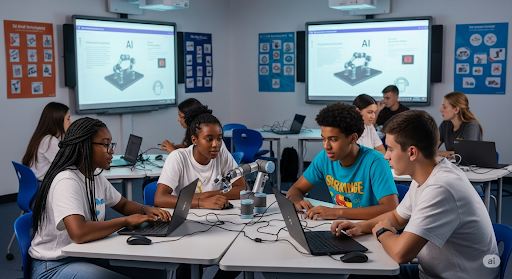
Emerging Trends in Artificial Intelligence and Machine Learning: What You Need to Know
Takeaways: The landscape of artificial intelligence (AI) and machine learning (ML) is rapidly evolving. Key trends include the rise of generative AI, advancements in natural language processing, the growing focus on ethical AI, automation across industries, and the integration of AI with IoT devices. Understanding these trends is essential for businesses looking to leverage technology for growth.
1. The Rise of Generative AI

Businesses are beginning to harness generative AI for various applications, including automated content creation, personalized marketing, and product design. This trend not only enhances creativity but also streamlines workflows, allowing companies to produce high-quality content at a fraction of the time and cost.
Moreover, generative AI is revolutionizing industries such as entertainment and gaming, where it can be used to create immersive experiences and rich narratives. As the technology continues to improve, we can expect even more innovative applications across various sectors.
2. Advancements in Natural Language Processing

Businesses are leveraging NLP for sentiment analysis, enabling them to gauge public opinion about their brand or products. Additionally, the integration of NLP with voice recognition technologies is facilitating the rise of voice-activated devices, leading to a more natural human-computer interaction.
The application of NLP in content creation and summarization is also noteworthy. AI tools can now produce coherent articles, summaries, and reports, aiding professionals in content-heavy industries. As these technologies evolve, we can expect NLP to play an integral role in enhancing productivity and communication.
3. The Growing Focus on Ethical AI

Ethical AI focuses on ensuring that AI systems are transparent, fair, and accountable. This includes developing guidelines for responsible AI use, conducting regular audits, and implementing bias detection mechanisms. Companies that prioritize ethical AI practices not only mitigate risks but also build trust with their customers and stakeholders.
The conversation around the ethical use of AI is also influencing regulatory frameworks worldwide. Governments are beginning to establish guidelines and laws to govern the use of AI, ensuring that its benefits are accessible to all while minimizing potential harm.
4. Automation Across Industries

In healthcare, machine learning algorithms are being used for predictive analytics, helping medical professionals make informed decisions about patient care. Automation extends to finance, logistics, and supply chain management, where AI systems analyze data to optimize operations and predict market trends.
The impact of automation is profound, resulting in increased productivity and the ability to operate at scale. However, it also raises questions about the future of work and the need for reskilling the workforce to adapt to new roles created by these technologies.
5. Integration of AI with IoT Devices

Smart homes, industrial automation, and smart cities are just a few examples of how AI and IoT are working together. For instance, AI can optimize energy consumption in smart buildings by analyzing usage patterns and making real-time adjustments.
This integration is also enhancing predictive maintenance in manufacturing, where AI analyzes data from machinery to predict failures before they occur, thereby reducing downtime and maintenance costs.




